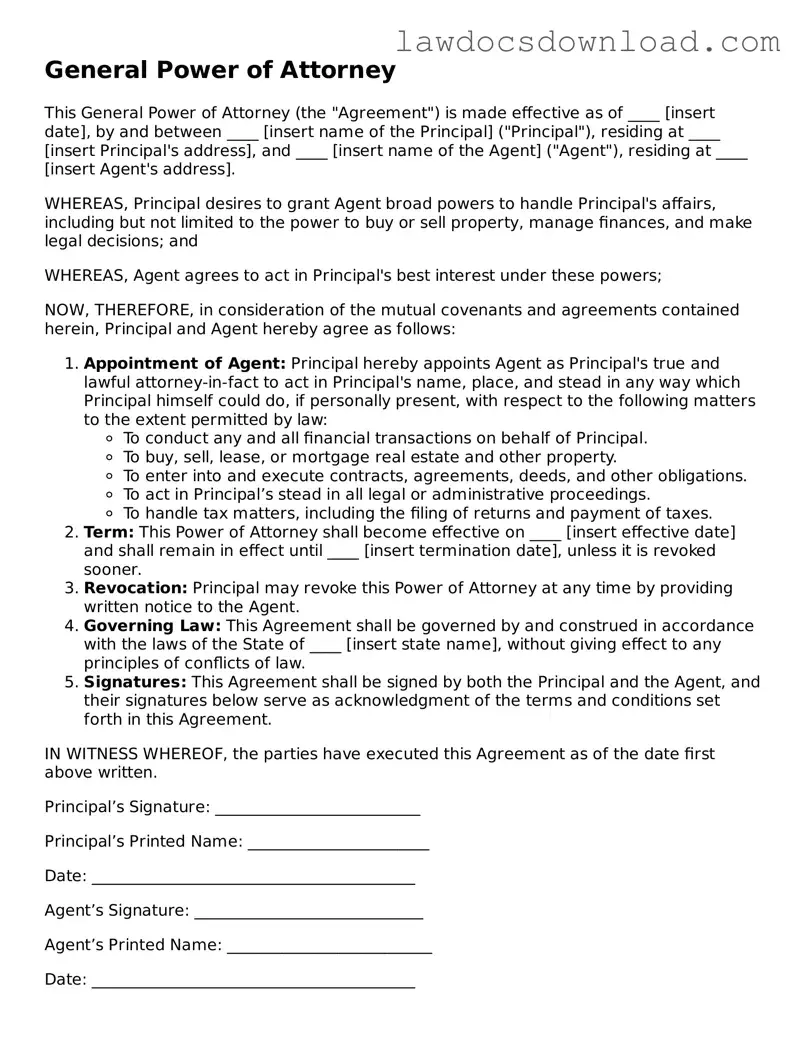General Power of Attorney
This General Power of Attorney (the "Agreement") is made effective as of ____ [insert date], by and between ____ [insert name of the Principal] ("Principal"), residing at ____ [insert Principal's address], and ____ [insert name of the Agent] ("Agent"), residing at ____ [insert Agent's address].
WHEREAS, Principal desires to grant Agent broad powers to handle Principal's affairs, including but not limited to the power to buy or sell property, manage finances, and make legal decisions; and
WHEREAS, Agent agrees to act in Principal's best interest under these powers;
NOW, THEREFORE, in consideration of the mutual covenants and agreements contained herein, Principal and Agent hereby agree as follows:
- Appointment of Agent: Principal hereby appoints Agent as Principal's true and lawful attorney-in-fact to act in Principal's name, place, and stead in any way which Principal himself could do, if personally present, with respect to the following matters to the extent permitted by law:
- To conduct any and all financial transactions on behalf of Principal.
- To buy, sell, lease, or mortgage real estate and other property.
- To enter into and execute contracts, agreements, deeds, and other obligations.
- To act in Principal’s stead in all legal or administrative proceedings.
- To handle tax matters, including the filing of returns and payment of taxes.
- Term: This Power of Attorney shall become effective on ____ [insert effective date] and shall remain in effect until ____ [insert termination date], unless it is revoked sooner.
- Revocation: Principal may revoke this Power of Attorney at any time by providing written notice to the Agent.
- Governing Law: This Agreement shall be governed by and construed in accordance with the laws of the State of ____ [insert state name], without giving effect to any principles of conflicts of law.
- Signatures: This Agreement shall be signed by both the Principal and the Agent, and their signatures below serve as acknowledgment of the terms and conditions set forth in this Agreement.
IN WITNESS WHEREOF, the parties have executed this Agreement as of the date first above written.
Principal’s Signature: __________________________
Principal’s Printed Name: _______________________
Date: _________________________________________
Agent’s Signature: _____________________________
Agent’s Printed Name: __________________________
Date: _________________________________________

